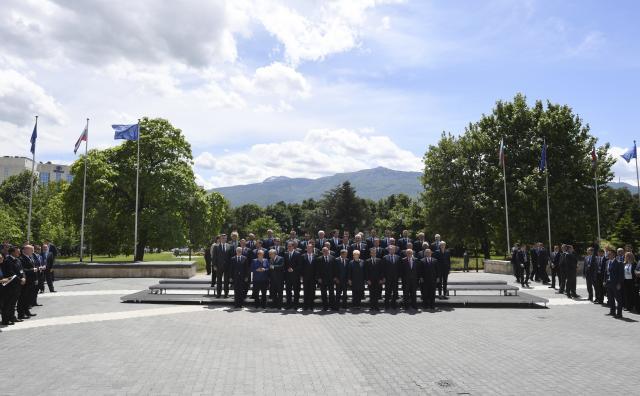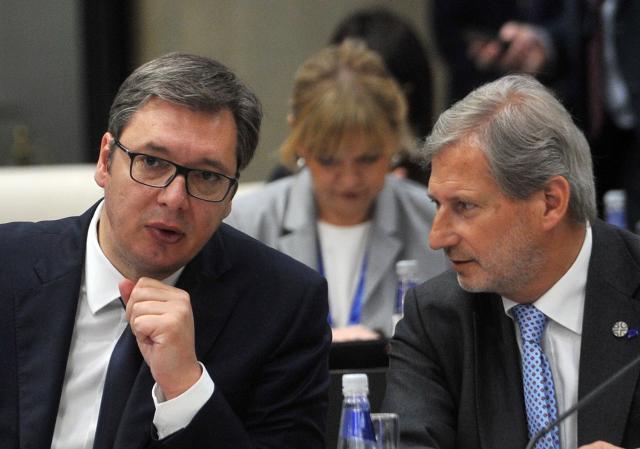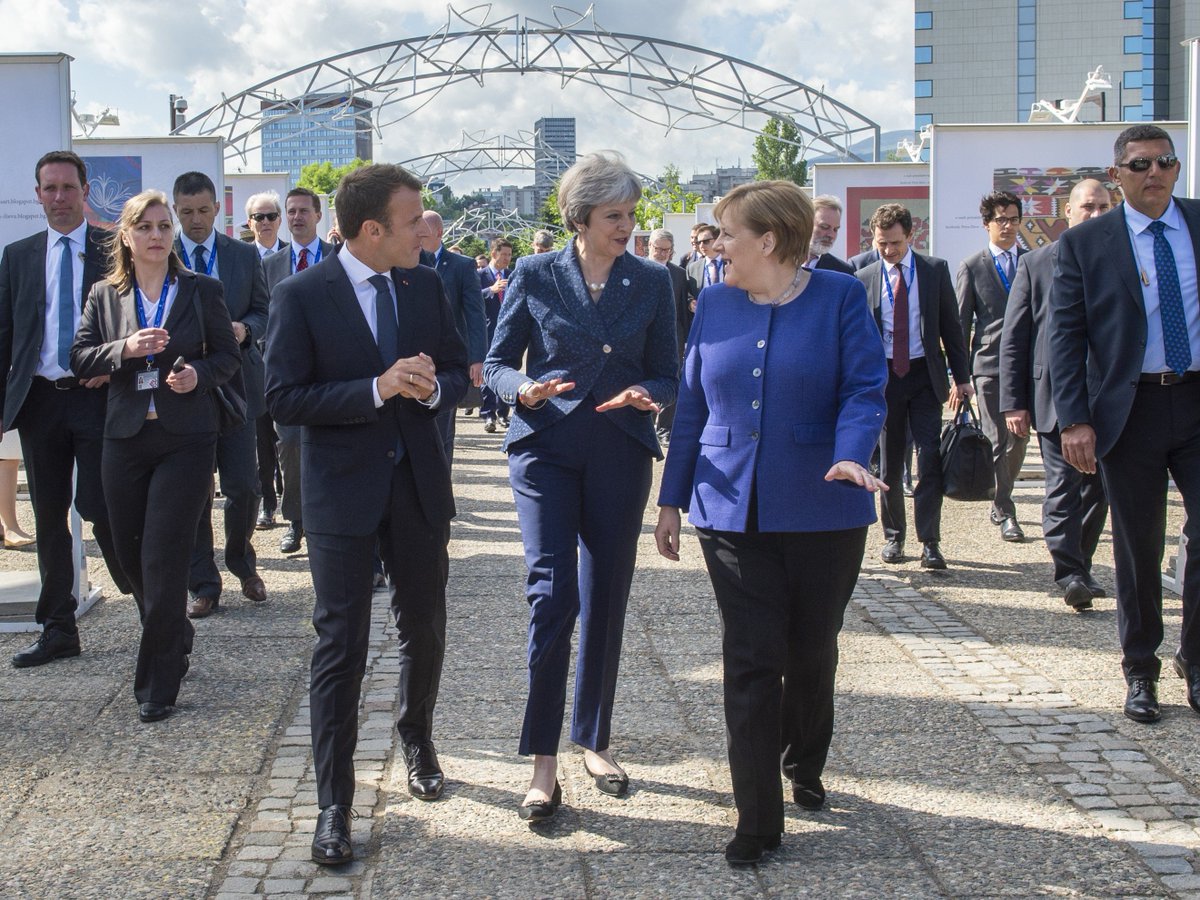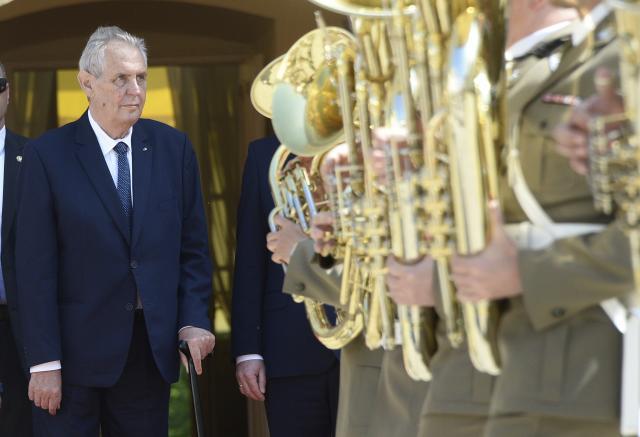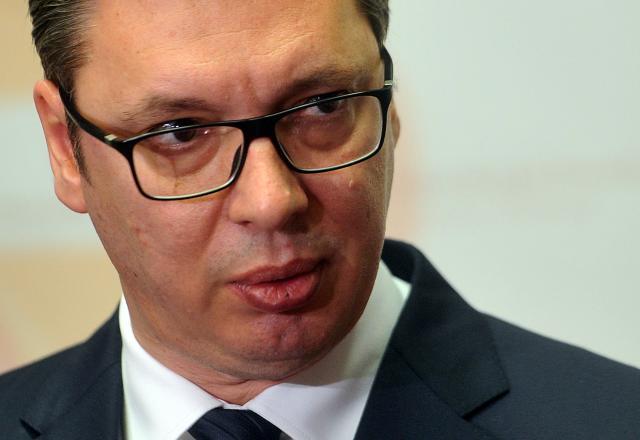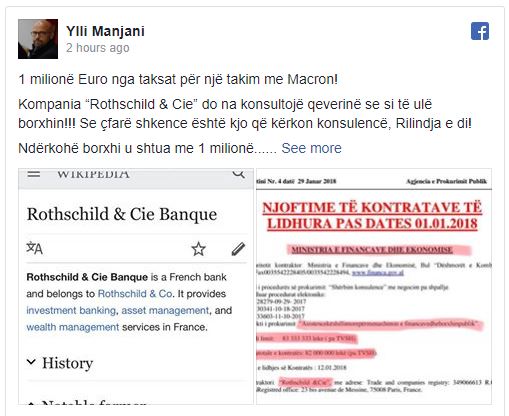
SManalysis
Δημοσίευση: 19 Μάϊου 2018, Pentapostagma
Πληροφορίες σερβικών μυστικών υπηρεσιών σαφέστατα, αναφέρουν μέσω της σερβικής ιστοσελίδας Pravda ότι προετοιμάζονται λίαν επικίνδυνες δραστηριότητες στη διάσημη αμερικανική βάση Bonsteel κοντά στο Ferizaj στο Κοσσυφοπέδιο, οι οποίες θα εμπλέξουν ολόκληρα τα Βαλκάνια από την « έκρηξη» του αλβανικού εθνικισμού.
H CIA την ίδια στιγμή, αναφέρει επικείμενη «ρωσική άνοιξη» στην ίδια περιοχή .
Αρκετά μέλη της KFOR, με επικεφαλής τις ΗΠΑ, εκπαιδεύουν κάτω από άκρα μυστικότητα το αποκαλούμενο Στρατό του Κοσσυφοπεδίου, κάτι που αντίκειται σε όλες τις διεθνείς συνθήκες και συμφωνίες γεγονός που θα επιφέρει την άμεση ρωσική αντίδραση λόγω της συμμετοχής της χώρας ως μόνιμο μέλος του ΟΗΕ υπεύθυνο για την τήρηση των συνθηκών στο Κοσσυφοπέδιο .
Η αμερικανική στρατιωτική βάση του «Bondsteel» κοντά στο Ουρόσεβατς έχει μετατραπεί σε κέντρο εκπαίδευσης για τους Αλβανούς στρατιώτες του αποκαλούμενου στρατού του Κοσσυφοπεδίου, ο οποίος θα κληθεί να δράσει σε περίπτωση εντάσεων στο Πρέσεβο , δηλαδή στην νότια Σερβία, η οποία θα αποτελέσει το επόμενο σχέδιο κρούσης του ΝΑΤΟ για τον πλήρη διαμελισμό της πρώην Γιουγκοσλαβίας.
Το σχέδιο αυτό είναι κάτω από το πέπλο των διεθνών δυνάμεων στο Κοσσυφοπέδιο με τις προετοιμασίες για το σχηματισμό των ενόπλων δυνάμεων του ψευδοκράτους του Κοσσυφοπεδίου να αποκαλύπτει ο Ρώσος αναπληρωτής πρεσβευτής στον ΟΗΕ Vladimir Safronkov , μιλώντας ο ίδιος στο Συμβούλιο Ασφαλείας.
Εκεί ο Ρώσος διπλωμάτης προειδοποίησε ότι δεκάδες μέλη της KFOR εκπαιδεύουν κρυφά μέλη της σημερινής Δύναμης Ασφάλειας του Κοσσυφοπεδίου.
Η Μόσχα διαβίβασε επίσης τις πληροφορίες της στις στρατιωτικές υπηρεσίες πληροφοριών του Βελιγραδίου, επιβεβαιώνοντας τις μακροχρόνιες σερβικές υποψίες ότι η αμερικανική βάση στο Κόσοβο υπηρετεί υψηλού επιπέδου συμφέροντα.
Την ίδια στιγμή ο Αμερικανός πρώην ανώτερος πράκτορας της CIA Michael J. Sulik, σε συνέντευξή του στην σερβική εφημερίδα Polityka προειδοποιεί και αυτός με την σειρά του επικείμενη «ρωσική εκτροπή ή άνοιξη» στα Βαλκάνια.
«Η αποδυνάμωση των δυτικών δομών, η δυσπιστία των αξιών, καθώς και ο συμβιβασμός του ΝΑΤΟ, είναι ένας από τους κύριους στρατηγικούς στόχους του Βλαντιμίρ Πούτιν.
Η δημοκρατία είναι η κατάρα του ιστορικού οράματος του Πούτιν», λέει ο Σουλίκ, ο οποίος ήταν επικεφαλής των επιχειρήσεων της CIA στη Ρωσία και την Κεντρική Ευρώπη.
Στο ερώτημα αν φοβάται τη Ρωσία, Ο Sulik είπε, «φοβάμαι ότι και ο επικεφαλής του βρετανικού στρατού Α/ΓΕΣ, Στρατηγός Nick Carter, ο οποίος σε ομιλία του στο London think tank RUSI» μίλησε σε σχέση με την Ρωσία …για «λανθασμένο υπολογισμό της δύσης».
«Όταν μια πλευρά, βασισμένη σε ορισμένες υποθέσεις, ερμηνεύει με λάθος τρόπο τις προθέσεις του άλλου,θα αντιμετωπίσει σχεδόν σίγουρα μια ένοπλη σύγκρουση. Αυτός είναι ο μεγαλύτερος φόβος μου, αν με αφορά απειλή από τη Ρωσία», δηλώνει ο ίδιος.
Την ίδια στιγμή, ο πρώην αξιωματούχος της CIA δεν πιστεύει ότι η Ρωσία επιδιώκει ένοπλη σύγκρουση με το ΝΑΤΟ, τουλάχιστον για τώρα.
Εξάλλου, παρά τον εκσυγχρονισμό του ρωσικού στρατού, η πιθανή στρατιωτική του νίκη επί του ΝΑΤΟ είναι πολύ αμφιλεγόμενη. Ως εκ τούτου, η Ρωσία χρησιμοποιεί άλλα μέσα, τονίζει ο ίδιος .
Αντί της στρατιωτικής επιθετικότητας, ο Βλαντιμίρ Πούτιν εφαρμόζει άλλου είδους στρατηγική , που ονομάζεται το «δόγμα Γερασίμωφ» ( Ρώσος Α/ΓΕΕΘΑ), το οποίο βασίζεται σε «στρατιωτικά μέσα κρυφού χαρακτήρα», με ιδιαίτερη έμφαση στη δράση, στον τομέα του πολέμου πληροφοριών, λέει ο πρώην αξιωματικός της CIA.
«Αυτό το δόγμα χρησιμοποιεί όχι μόνο τις σύγχρονες ψηφιακές τεχνολογίες, αλλά δίνει και στη Ρωσία πολλά άλλα οφέλη. Καταρχάς, δεν απαιτεί μεγάλο οικονομικό κόστος, το οποίο έχει μεγάλη σημασία για μια χώρα με φτωχή οικονομία.
Επίσης, αποζημιώνει άμεσα για την απουσία ενός μακροχρόνιου στρατιωτικού πλεονεκτήματος.
Λαμβάνοντας υπόψιν τις επιτυχίες της Ρωσίας που σχετίζονται με τη χρήση κυβερνοεπιθέσεων και επιθέσεων στον κυβερνοχώρο σε Εσθονία, Γεωργία, Ουκρανία και Ηνωμένες Πολιτείες, το Κρεμλίνο είναι βέβαιο ότι θα συνεχίσει να βασίζεται στον πόλεμο των πληροφοριών και άλλων μορφών καταστροφικών δραστηριοτήτων , σκοπός των οποίων είναι να αποδυναμώσει τον εχθρό, και κυρίως τα μέλη του ΝΑΤΟ , καθώς και την ίδια την συμμαχία», προβλέπει ο Sulik.
Στην συνέντευξη του στην σερβική εφημερίδα polityka, ο πρώην αξιωματικός της CIA τονίζει επίσης ότι η αποδυνάμωση των δυτικών θεσμών και αξιών είναι ένας από τους κύριους στρατηγικούς στόχους του Πούτιν, για αυτό και εφαρμόζει το «δόγμα Γερασίμωφ» .
Πρόκειται για τη δημιουργία χάους και την αμφισβήτηση των δεσμών που συνδέουν τα μέλη του ΝΑΤΟ, «τοποθετώντας» μια σφήνα μεταξύ της συμμαχίας και των λαών της δύσης , που θα δυσφημίζει τις δημοκρατικές κυβερνήσεις.
«Η δημοκρατία είναι η κατάρα του ιστορικού οράματος του Πούτιν. Κάπου στα μέσα από το 2006, ο ίδιος ξεκίνησε να υιοθετεί όλο και περισσότερο το σλαβικό όραμα της μεσαιωνικής και κυρίαρχης μοίρας της Ρωσίας ως τρίτη Ρώμη.
Ως ηθικό προπύργιο ενάντια στη Δύση, πατάσσοντας την διαφθορά και σώζοντας από την παρακμή τις χώρες των Βαλκανίων.
Για να επιτευχθεί ο στόχος, οι ρωσικές αρχές δεν θέλουν μόνο να διατηρήσουν τον αντίκτυπο της δημοκρατίας στη Ρωσία ώστε να γίνεται αντιληπτή αυτή ως ένα δηλητήριο, αλλά έχουν σκοπό να αποδυναμώσουν τελείως την εξουσία της Δύσης» ,εξηγεί ο ίδιος.
Μία από τις περιοχές στις οποίες ο Αμερικανός αξιωματούχος των μυστικών υπηρεσιών αναμένει «ρωσική άνοιξη» στο εγγύς μέλλον είναι τα Βαλκάνια.
Εξάλλου, παρά τις ειρηνευτικές συμφωνίες της δεκαετίας του 1990, η περιοχή παραμένει ασταθής και η Ρωσία δεν συμφιλιώθηκε ποτέ με την ήττα του Σερβικού συμμάχου της.
«Η Ρωσία σίγουρα θα καταφύγει σε «εργαλεία» του πολέμου πληροφοριών, καθώς και σε άλλα κρυφά μέσα, για να επηρεάσει τις επερχόμενες εκλογές στο Μαυροβούνιο και τη Βοσνία», δήλωσε ο Σουλίκ.
Διαβάζοντας όλα αυτά όμως από Ρώσους, Σέρβους και Αμερικανούς εκτός του κινδύνου ανάφλεξης στα βόρεια ελληνικά σύνορα …σίγουρα αναγνωρίζουμε και τωρινές μεθόδους τουρκικού πληροφοριακού πολέμου κατά της Ελλάδος.
Υπενθυμίζουμε ότι πριν μερικές ημέρες οι επικεφαλείς των μυστικών υπηρεσιών Ρωσίας- Τουρκίας είχαν τρομερά σημαντική συνάντηση στην Κωνσταντινούπολη, για θέματα της διεθνούς τρομοκρατίας, όπως είχε δηλώσει ο επικεφαλής Τύπου των ρωσικών υπηρεσιών πληροφοριών Σεργκέι Ιβανόφ.
«Στις 13 Μαΐου ο διοικητής των Μυστικών Υπηρεσιών της Ρωσίας Σεργκέι Ναρίσκιν είχε στην Κωνσταντινούπολη συνάντηση εργασίας με τον αρχηγό των Εθνικής Υπηρεσίας Ασφαλείας (ΜΙΤ) της Τουρκίας Χακάν Φιντάν», δήλωσε ο Ιβανόφ.
Οι αρχηγοί των μυστικών υπηρεσιών της Ρωσίας και της Τουρκίας συζήτησαν θέματα περαιτέρω ενίσχυσης της συνεργασίας στον τομέα της καταπολέμησης της διεθνούς τρομοκρατίας.
Οι Τούρκοι από ότι όλα δείχνουν είτε υφαρπάζουν είτε δέχονται «δωρεάν μαθήματα» από τους Ρώσους …και μετά τα εφαρμόζουν στο Αιγαίο , την ΠΓΔΜ, την Αλβανία κά .



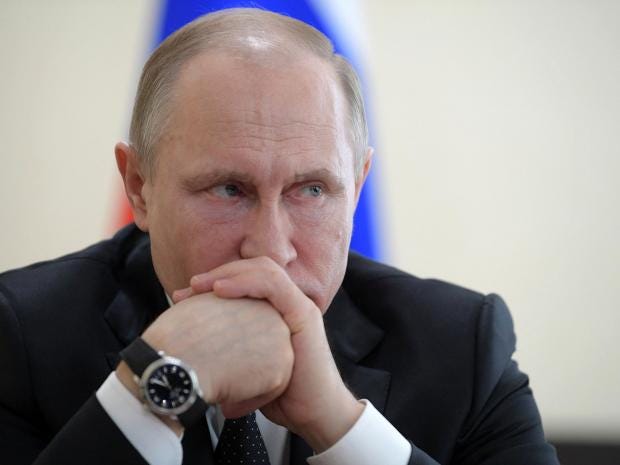 SManalysis
SManalysis
